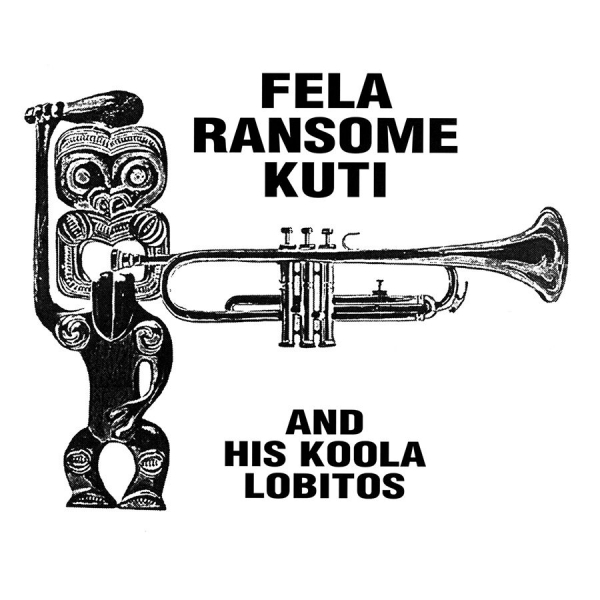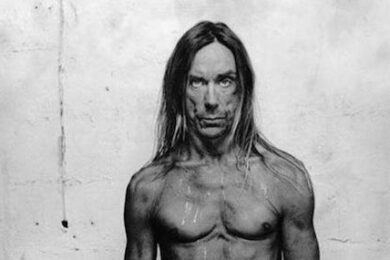Before Afrobeat, there was Highlife-Jazz and Afro-Soul. Highlife music, originally from Ghana and widely popular across West Africa, dominated the music scene in Lagos when Fela Kuti returned to the newly independent Nigeria in 1963. Fela had been studying trumpet at Trinity College of Music in London where he met drummer Tony Allen, who also joined him in new group Koola Lobitos as they sought to mix things up by introducing the sounds they had heard in the capital’s jazz clubs.
The music of Fela Kuti has never been easy for beginners to know where to start – later groups Africa ’70 and Egypt ’80 released more than 50 albums – and this set of early recordings with Koola Lobitos represents a largely unknown, or at least unheard, period of his career. Most of the material here was only ever released on 7" in Nigeria in the 1960s and has largely remained out of print, presumed "lost" since, so Highlife-Jazz and Afro-Soul (1963-1969) offers a revelatory insight to the beginnings of the musical ideas that led to the foundation of Afrobeat. The set collects the Koola Lobitos discography over three CDs and 39 tracks and was compiled by chemistry professor and African music blogger Toshiya Endo for its original Japanese release in 2005.
While Fela’s Afrobeat compositions took the groove to its limit over side-long tunes, the first disc of early 7" singles here demonstrates the group’s desire to take existing sounds and create something new, if not the extended focus and political message that would come later. The group were still developing ahead of the curve though and the abstract sounds were new to listeners in Nigeria, incorporating jazz chords into highlife arrangements.
The group’s mid-60s self-titled debut album opens with ‘Signature Tune’, a short, sharp blast of percussion-led brass that leads into ‘Highlife Time’, which provides a statement of intent as Fela introduces the music that’s "got the beat". You get a feel for how the group could ignite a dancefloor, as the group’s highlife rhythms fuse with Fela’s jazz licks on the trumpet, inspired by Charlie Parker, Miles Davis and Dizzy Gillespie. ‘Ofulufe’ shows a steadier side of the group, as snaky saxophone lines weave around Fela’s vocals, transporting the influence of American jazz musicians back to Africa. The horn blasts around the extended dance rhythms of ‘Obinrin Le (Women Are Unpredictable)’ is perhaps the closest to the kind of arrangements that would be developed later.
"Welcome to Afro Spot everybody," Fela greets the crowd at the start of the live disc from the 1966 10" EP Afro Beat On Stage… Recorded Live At The Afro Spot. "Now we’re swinging." And soon the groups’ slow, seductive groove envelopes around your ears with warm fuzzy tones. The bluesy ‘Every Day I Got My Blues’ has a voodoo twist as the percussion speeds up the track. Among the background chatter of the audience Fela breaks the songs down with vocal ad-libs capturing a moment in time on the crackly lo-fi recordings. Allen provides much of the drama throughout with unconventional drum fills, inspired by jazz drummers including Art Blakey, Elvin Jones and Max Roach, as he developed his own "four limbed" style of playing. Later 7" tracks originally released from 1966-68, including the singles ‘My Baby Don’t Love Me’ and ‘Home Cooking’, complete the set and show the group taking their influence from US soul and James Brown.
While comprehensively covering the early years of his musical output, for Fela Kuti this was merely the starting point. His music would soon to go in a very different direction, as he moved from trumpet to saxophone (apparently due in part to the effect it had on his kissing technique), signalling the radical departure his evolving sound was about to take.
The Koola Lobitos lineup visited the US in the late 60s and made recordings later released as The ’69 Los Angeles Sessions, under the name Nigeria ’70, ahead of the prolific period that followed. Around the time of this trip Fela met American black rights activist Sandra Izadore, who introduced him to the Black Panthers and revolutionary writings by Malcom X and Angela Davis that inspired his political thinking and to use his "music as weapon". Fela and Allen’s musical partnership continued into the 1970s, along with another long-time collaborator, baritone saxophonist Lekan Animashaun, who had joined Koola Lobitos in 1965, as they developed their progressive musical vision in the form of a new music – the Afrobeat sound.




